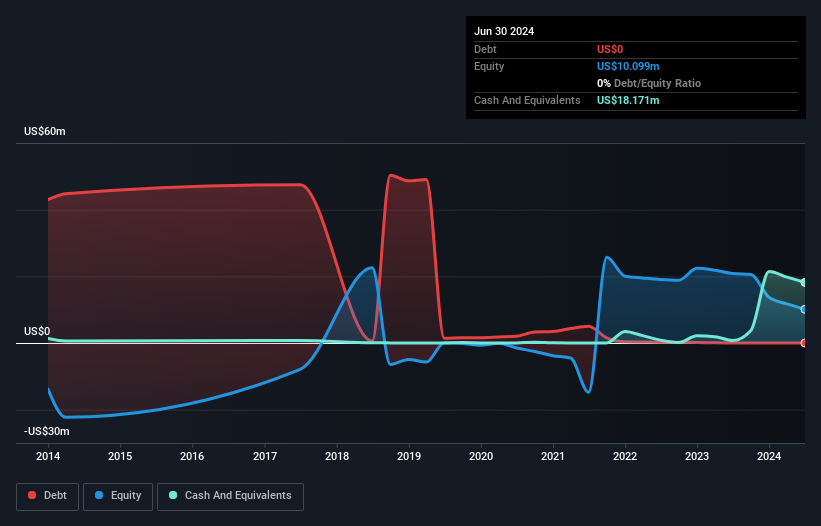There’s no doubt that money can be made by owning shares of unprofitable businesses. For example, although Amazon.com made losses for many years after listing, if you had bought and held the shares since 1999, you would have made a fortune. But the harsh reality is that very many loss making companies burn through all their cash and go bankrupt.
So should Besra Gold (ASX:BEZ) shareholders be worried about its cash burn? For the purpose of this article, we’ll define cash burn as the amount of cash the company is spending each year to fund its growth (also called its negative free cash flow). First, we’ll determine its cash runway by comparing its cash burn with its cash reserves.
See our latest analysis for Besra Gold
When Might Besra Gold Run Out Of Money?
A company’s cash runway is the amount of time it would take to burn through its cash reserves at its current cash burn rate. When Besra Gold last reported its June 2024 balance sheet in September 2024, it had zero debt and cash worth US$18m. In the last year, its cash burn was US$7.8m. Therefore, from June 2024 it had 2.3 years of cash runway. Arguably, that’s a prudent and sensible length of runway to have. The image below shows how its cash balance has been changing over the last few years.
How Is Besra Gold’s Cash Burn Changing Over Time?
Besra Gold didn’t record any revenue over the last year, indicating that it’s an early stage company still developing its business. So while we can’t look to sales to understand growth, we can look at how the cash burn is changing to understand how expenditure is trending over time. The skyrocketing cash burn up 129% year on year certainly tests our nerves. That sort of spending growth rate can’t continue for very long before it causes balance sheet weakness, generally speaking. Admittedly, we’re a bit cautious of Besra Gold due to its lack of significant operating revenues. We prefer most of the stocks on this list of stocks that analysts expect to grow.
Can Besra Gold Raise More Cash Easily?
While Besra Gold does have a solid cash runway, its cash burn trajectory may have some shareholders thinking ahead to when the company may need to raise more cash. Generally speaking, a listed business can raise new cash through issuing shares or taking on debt. Commonly, a business will sell new shares in itself to raise cash and drive growth. By looking at a company’s cash burn relative to its market capitalisation, we gain insight on how much shareholders would be diluted if the company needed to raise enough cash to cover another year’s cash burn.
Since it has a market capitalisation of US$26m, Besra Gold’s US$7.8m in cash burn equates to about 31% of its market value. That’s fairly notable cash burn, so if the company had to sell shares to cover the cost of another year’s operations, shareholders would suffer some costly dilution.
How Risky Is Besra Gold’s Cash Burn Situation?
Even though its increasing cash burn makes us a little nervous, we are compelled to mention that we thought Besra Gold’s cash runway was relatively promising. We don’t think its cash burn is particularly problematic, but after considering the range of factors in this article, we do think shareholders should be monitoring how it changes over time. On another note, we conducted an in-depth investigation of the company, and identified 3 warning signs for Besra Gold (2 don’t sit too well with us!) that you should be aware of before investing here.
Of course Besra Gold may not be the best stock to buy. So you may wish to see this free collection of companies boasting high return on equity, or this list of stocks with high insider ownership.
Have feedback on this article? Concerned about the content? Get in touch with us directly. Alternatively, email editorial-team (at) simplywallst.com.
This article by Simply Wall St is general in nature. We provide commentary based on historical data and analyst forecasts only using an unbiased methodology and our articles are not intended to be financial advice. It does not constitute a recommendation to buy or sell any stock, and does not take account of your objectives, or your financial situation. We aim to bring you long-term focused analysis driven by fundamental data. Note that our analysis may not factor in the latest price-sensitive company announcements or qualitative material. Simply Wall St has no position in any stocks mentioned.


